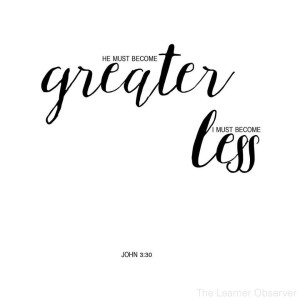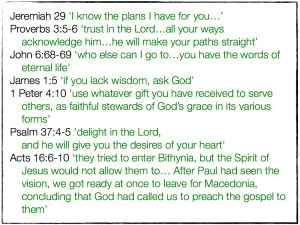by Jonathan Manafo | Mar 22, 2016 | Sunday Conversations
Monday
(John 18:3-11)
…Judas came to the garden, guiding a detachment of soldiers and some officials from the chief priests and the Pharisees. They were carrying torches, lanterns and weapons.
Jesus, knowing all that was going to happen to him, went out and asked them, “Who is it you want?”
“Jesus of Nazareth,” they replied.
“I am he,” Jesus said. (And Judas the traitor was standing there with them.) When Jesus said, “I am he,” they drew back and fell to the ground.
Again he asked them, “Who is it you want?”
“Jesus of Nazareth,” they said.
Jesus answered, “I told you that I am he. If you are looking for me, then let these men go.”
…Then Simon Peter, who had a sword, drew it and struck the high priest’s servant, cutting off his right ear.
Jesus commanded Peter, “Put your sword away! Shall I not drink the cup the Father has given me?”
As you begin this Holy Week, think about Jesus’ willingness to go to the cross. He knows what is going to happen, and though he may have some fear (he was a man after all), he steps into his final week with purpose and determination.
Jesus always showed a third way to deal with conflict. This was very much exemplified in every step towards the cross. When Peter reacts to oncoming soldiers with violence Jesus opposes his actions. He asks him to put his sword away. And then in a moment of full awareness reminds Peter that he knows full well what is coming, as well as his willingness to embrace this act of love for the world.
The cross didn’t catch Jesus by surprise, he willingly began to walk towards it. Why? Because as difficult as every step would be, this was the only way (the Father’s plan) to save the world, to save you, to save me.
…………
God, thank you for Jesus’ willingness to walk towards the cross. Thank you that in his death you gave me life. As we get closer to Easter Sunday, prepare my heart to fully appreciate your love for me and the world.
Amen
Tuesday
(Isaiah 25:8-9)
He will swallow up death forever, he will wipe away all tears on all faces…he will remove people’s disgrace from all the earth…
“Surely this is our God;
we trusted in him, and he saved us.
This is the Lord, we trusted in him;
let us rejoice and be glad in his salvation.”
Do you trust God to come through? Why ask? Because many people are desperately waiting for God to show up. Something may be broken in your life, your relationships, your career, your family – something is broken, and your waiting for the one who you hope can fix it to show up.
The Easter story is definitely bigger than one person’s afflictions, but don’t let that fool you to think that Jesus’ death & resurrection don’t have an impact on ‘your’ life. Sometimes we can fathom God’s sacrifice for the world and forget that he did what he did for just me.
So let whatever has to die in you die (with Jesus’ death) and allow his resurrection to raise you to life. Believe today that Jesus does wipe away ‘all’ tears and ‘all’ disgrace…and believe that he saves a world that includes you.
If you’re in the middle of a dark and difficult ‘Friday’, be patient, trust in God, and know that Sunday is the climax of this amazing story.
…………….
God, thank you that in our struggle we can trust you. Today I invite you again to be the restorer and redeemer of my life. Give me a perspective that includes you as my Saviour.
Amen
25 Jesus called them together and said, “You know that the rulers of the Gentiles lord it over them, and their high officials exercise authority over them. 26 Not so with you. Instead, whoever wants to become great among you must be your servant, 27 and whoever wants to be first must be your slave— 28 just as the Son of Man did not come to be served, but to serve, and to give his life as a ransom for many.”
Jesus introduces a new way to lead, it’s through serving. His disciples start to put the pieces together and figure that if Jesus is really who he says he is and they’re following him this puts them in a pretty smug position – Jesus’ right hand people. Jesus however uses this moment to teach the Disciples two things: 1) Greatness comes through serving and 2) He will be their ultimate example of what a servant is and does.
Jesus came to serve, not be served. When we get a glimpse of God’s love for us through Jesus, we find ourselves wanting to do the same – serving. Jesus came for this very purpose, to serve the world by giving his life. This is one of those times that Jesus hints at what’s coming soon – his death.
Take a minute to be thankful for Jesus’ example, both in life and in death. Think about how his sacrifices compels us to be sacrificial in our lives.
God, thank you for the cross. Thank you that through it you served the world. To think you loved me so much that you came to serve me? Wow. Let that truth sit in and then let it inspire me to serve others as well.
You see, at just the right time, when we were still powerless, Christ died for the ungodly. Very rarely will anyone die for a righteous person, though for a good person someone might possibly dare to die. But God demonstrates his own love for us in this: While we were still sinners, Christ died for us.
How does one even begin to understand the importance of Jesus’ death? So much to consider and be thankful for.
Paul, however, in Romans 5 seems to sum it up quite well. While I was still a sinner, still weak, still powerless, Jesus died for me. While you were still broken and defeated, Jesus died for you.
I don’t have to win Jesus’ approval or work for his love. These beautiful words in Romans 5 remind me that he loved me first, he loved me anyways, he loved me just because. How did he show it? Death. Sacrifice. A Cross.
Religion tells me I have to do something to be saved, Jesus, in the gospels, shows me that he already did it.
God, thank you for the love shown on the cross. Thank you that you didn’t wait for me to get my act together, you acted first and died for me. If I ever doubt your love, may I simply look to the cross for a fresh reminder.
Good Friday
(Isaiah 53:1-5)
1 Who has believed our message
and to whom has the arm of the Lord been revealed?
2 He grew up before him like a tender shoot,
and like a root out of dry ground.
He had no beauty or majesty to attract us to him,
nothing in his appearance that we should desire him.
3 He was despised and rejected by mankind,
a man of suffering, and familiar with pain.
Like one from whom people hide their faces
he was despised, and we held him in low esteem.
4 Surely he took up our pain
and bore our suffering,
yet we considered him punished by God,
stricken by him, and afflicted.
5 But he was pierced for our transgressions,
he was crushed for our iniquities;
the punishment that brought us peace was on him,
and by his wounds we are healed.
How is Friday Good? Because he took our pain, he bore our suffering, he was pierced and crushed for our sin, his pain brought us peace, his wounds brought us healing.
Scot McKnight says that Jesus died…
– with us (identification)
– instead of us (representation & substitution)
– for us (incorporation into the life of God)
In due time we will celebrate Sunday, but today, let’s take in all that is Friday.
……….
God, thank you that on a Friday that looked so bad, you made it good. On Friday that looked so dark, you brought light. On a day that was full of death, you turned it into life. Jesus, took my sin, put it on his shoulders, and made it so I don’t have that burden any longer. Today is a Good Friday.
Amen
by Jonathan Manafo | Mar 8, 2016 | Sunday Conversations
Below you will find notes and links to last Sunday’s conversation. We’re in the middle of a video series (borrowed from TMH). We talk about the scriptures all the time, in our public Sunday gatherings, but for these few weeks we’re talking about how and why we read the Bible. It’s been a very important and valuable discussion so far.

Do you take the time to read the Bible or do you simply listen to others teach you about it. Of course we value gathering in community and learning from Scripture together, but do we take next steps in our learning and our faith journey? Reading the bible regularly is most definitely a part our spiritual growth journey. So…take it in on Sundays when we’re together, and also be determined to continue learning on your own.
Check out the notes HERE and the full video recap HERE.
The third and final part to this series is happening this Sunday. From there we’ll be jumping into an Easter series, “Before, After, & After that”
by Jonathan Manafo | Feb 25, 2016 | Sunday Conversations
For this last post in our series, we’re going to keep things simple. How simple? We’re going to look at a few words found in John’s gospel. Two words specifically; increase and decrease. But first…
As we look back on the everything we talked about the last several weeks we noticed that there was a bit of a buzz around this series. It seemed to have struck a chord. I guess when you look at the themes and topics, it makes sense. We talked about our time, our money, our relationships, fear, peace, seasons, and discernment. These are ‘rubber meets the road’ kinds of things. Very practical and helpful right? Who doesn’t want to be better with their time and money and relationships? Who doesn’t want peace? Who doesn’t want to feel like they have the wisdom to make the right decisions as seasons of life change?
Let’s remember why we embarked on this journey of decluttering and in turn simplifying our lives – because we want to better hear God’s whisper in our lives. The noise can get out of hand, and God’s voice can get quite faint. Let’s take these lessons to heart and begin to be more attentive to God’s leading in all the area’s we talked about.
The need to declutter comes when things pile up, when life gets disorganize, and when the mountain of things we think we have to do topples over. Of course we can look at our garages, basements, homes, and cars as examples of the disorder or the clutter. However, there’s one place we can look that really shows how unnecessarily busy our lives are – our hearts. It’s in our heart where the real evidence is. That’s why the writer of Proverbs says, “Above all else, guard your heart, for it is the wellspring of your life” (4:23) Jesus even said that it’s from our hearts that our mouths speak. What’s inside is indicative of what’s coming out. So be careful what you let in.
And this leads us to John 3:30. At this point in the gospel story John the Baptist has completed his role, or he at least he thought so. Some of his friends are confused as to why Jesus is now getting the credit that was once John’s. But John knew his role and was full of joy that Jesus has arrived on the scene. John was always the pointer to Jesus, not the main actor; he was always just the appetizer, not the main dish, he was only the dating service, not the groom. So when we hear his words about Jesus, they should mean so much. In one sentence John clarifies his role, Jesus’ rightful place and our approach to faith in Jesus. You ready? Here it is: You must increase and I must decrease. Or. You must become greater and I must become less.
 That’s it right there. This is the way to an uncluttered heart. “I” become less and “Jesus” becomes more. I must “decrease” for Jesus to “increase”. I move things out of the way to make room for Jesus. We can have all the other things in our life in order, but if this part is out of sorts then the other stuff doesn’t matter anyways.
That’s it right there. This is the way to an uncluttered heart. “I” become less and “Jesus” becomes more. I must “decrease” for Jesus to “increase”. I move things out of the way to make room for Jesus. We can have all the other things in our life in order, but if this part is out of sorts then the other stuff doesn’t matter anyways.
I hope you’re thoughtful with your time so that your calendar helps you and doesn’t hurt you. I hope you’re a good steward with the money God provides. I hope you’re wise in your relationships, feeding others and being fed. I hope you have peace and not fear. I hope your can identify life seasons and navigate them well. But above all that, we simple need more of Jesus. We need to rearrange the furniture of our heart and make room for him. Some things need to just be moved, other things need to to be removed. Jesus, simply Jesus, is what must take the most space in our hearts. Because less of me actually means a better me. Less of me and more of him will always lead to a better version of myself. Jesus makes me a better human. How? By inviting him to take residence in my heart and life and letting his life flow through mine.
So as we continue on this journey of simplifying our lives, remember that Jesus, simply Jesus, takes the first and foremost spot in anyone’s heart, everything else should fall into place after that.
“Seek first the kingdom of God and his righteousness, and all these things will be added unto you”(Matthew 6:33)
– – – – – – – – – – – – – – – – – – – – – – – – – – – – – – – – –
small(er) group questions:
So, this series is done. What theme or topic spoke to you or challenged you most? Why?
How would you describe a cluttered heart?
Proverbs 4:23 says, “Above all else guard your heart…” What does that say to you? Why is this so important?
Take a few minutes to talk about John 3:30. “He must become greater, I must become less”. “He must increase and I must decrease”. How do you begin to unpack that?
We end with this one thought, ‘Simply Jesus’. What most excites you or encourages you about who Jesus is?
As you pray, please include a prayer for those affected at the Pickering High School this week.
by Jonathan Manafo | Feb 17, 2016 | Sunday Conversations

This winter has been a strange one, hasn’t it. Well, it has if you live in Southern Ontario. We who live in this part of North America are very used to 4 full seasons. Fall, Winter, Spring, Summer. Even though we are in the middle of winter, it has been a season that sure doesn’t feel like ‘our’ winters. You can appreciate how easy it is for a resident in Toronto to forget how cold or snowy winter can get while in the middle of one of the most warm winters we’ve had in a long time. Until of course we have a weekend where the temps drop to -25 followed by a couple of days of snow. Just when you thought you might escape old man winter, he shows up and reminds us that he’s still as ugly as ever.
What this does is bring us back to reality – we’re reminded that we live in a country with 4 full seasons. Seasons are wonderful for a few reasons, first, because they don’t last, and second, they help us appreciate what we’re saying bye to (winter) or saying hello to (summer).
Life is made up of many seasons. Some good, some bad. Some long, some short. Some warm and some cold. Good or bad, seasons are meant to be temporary.
One writer helps us put to words why the long view of seasons, identifying them, and discerning how to navigate through them, is the best way to live. He says…
When we view our lives as a string of random days connected only by a calendar it’s easy to overlook the active movement of God.
and…
Our ability to identify seasons of our lives increases our ability to co-operate with God, recognize his guiding hand, follow his lead, and expect the end of one season as the beginning of the next.
This leads us to the topic of Discernment. Identifying what comes next and deciding which way to go.
But first, Ecclesiastes 3…
There is a time for everything,
and a season for every activity under the heavens:
2 a time to be born and a time to die,
a time to plant and a time to uproot,
3 a time to kill and a time to heal,
a time to tear down and a time to build,
4 a time to weep and a time to laugh,
a time to mourn and a time to dance,
5 a time to scatter stones and a time to gather them,
a time to embrace and a time to refrain from embracing,
6 a time to search and a time to give up,
a time to keep and a time to throw away,
7 a time to tear and a time to mend,
a time to be silent and a time to speak,
8 a time to love and a time to hate,
a time for war and a time for peace
We can’t look at all of these, but it is worth taking a quick look at a few of them that hit home a little more.
Mourning vs Dancing
The writer of Ecclesiastes touches a sensitive topic here – grieving something that is lost. As we look at the grand scheme of our life we will notice times where we grieved and other times where we celebrated. The wisdom in this phrase is to take the opportunity to fully grieve when needed, but not stay there too long, while on the other side, ensure that one appreciates the good they are experiencing, as it won’t/can’t last forever.
Embracing vs Refraining to Embrace
This can be seen as relationship advice. (Enough said there) However, we can view this as how and when we embrace new challenges or opportunities. There are times to welcome a new challenge or jump into new opportunities. There are also times when we should refrain from them. An example might be financial opportunities. If you’re ready to take on a risky venture then it may be the time to do so, but if you’re struggling to make it by, then investing in something, as good as it looks, may not be the best thing for you to do. The question is, will you know the difference?
Keeping vs Throwing Away
This phrase may sum up our SIMPLIFIED series. We are attempting to declutter our lives so that we can hear God’s whisper. We must discern what we keep and what we let go of, when we keep and when we let go of things.
Silence vs Speaking
This may be the most challenging of all to figure out. When do we talk? When do we speak? When do we listen? When do we add to the conversation? Sometimes we say more when we say nothing. Other times we have to speak up. A friend may need you to listen, but that same friend may also need you to speak up and challenge them on a certain issue.
4 important things about viewing our life in seasons…
Identify your current season
– name it, call it, don’t hide from it
Be fully present in your season
– dive into it…tough season, own it…good season, celebrate it
What does God want to teach you
– If you believe God’s hand is in your season, then you’ll see the purpose to his activity. Don’t squander opportunities to learn and grow.
Recognize when the season is over
– which leads to that big word again, DISCERNMENT

People who discern well are those who…
– desire to know what God is up to
– ask God what is next…
– are open to hear God’s answer or thoughts
– really believe that God cares about them, their circumstance, their present and their future
Some scripture to consider as you think about discernment in times of choice.

– – – – – – – – – – – – – – – – – – – – – – – – – – – – – –
small(er) group discussion
What is it about seasons that you enjoy or don’t enjoy? Which one is your favourite?
Why is it so difficult to appreciate a season you may be in when you’re in the middle of it?
Read through Ecclesiastes 3 and discuss which one of the ‘this and that’ phrases jumps out at you? Is there one particular that resonates with you more? If so, why?
How can we best understand what God may want to teach us through a certain season in our life?
What about Discernment? How important is it for you to make the right decision in times of choice or transitions of seasons? Can you share any personal story about what you thought was a good or perhaps bad choice?
Which one of the closing scripture texts help you most when thinking about discernment?





